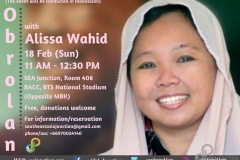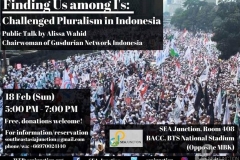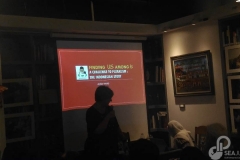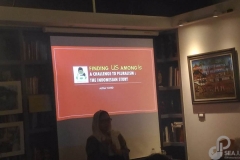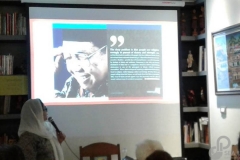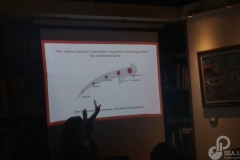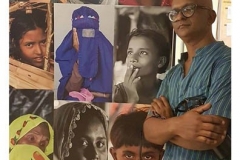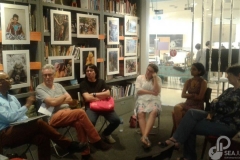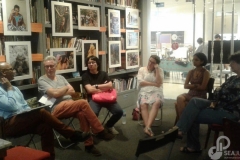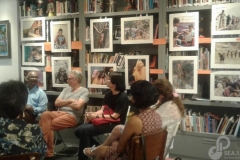Like in other parts of the world, also Indonesia has seen a rise in populism and narrow nationalism based largely upon religious and ethnic identity, which has proven attractive to voters. The politicization of religion is affecting inter-faith and inter-ethnic relationships, fostering intolerance, promoting a conservative moralist discourse, and leading to the stigmatization and scapegoating of minority groups like Christians, Chinese and also LGBTs.
Alissa Wahid, chairwoman of the GUSDURian Network Indonesia (GNI) talked about this worrisome trends and possible responses on 18 February at SEA Junction. GNI hosts thousands of grassroots-level activists in more than 100 cities in Indonesia, working to promote interfaith dialogue and understanding, active citizenship, democracy and human rights, all values upheld by the late H. Abdurrahman Wahid – or Gus Dur, former President of Indonesia and leader of the Nahdlatul Ulama, the largest Moslem social-organization in Indonesia.
Two events were being planned. The first is an informal chat with Alissa Wahid for the Indonesian community in Thailand and other interested parties who speak Indonesian language in the morning of 18 February at 11AM. This followed at about 12.30 by a simple Indonesian meal also to celebrate the “Unmentionable: Rohingya Refugees in Cox Bazaar” photo exhibition closing on the same day.
The second event on the same day at 5-6.30 PM was a public lecture by Alissa Wahid in English entitled “Finding Us among Is: Challenged Pluralism in Indonesia”. The lecture reflected on the threats posed by growing intolerance and religious populism to democracy and peace in Indonesia and ongoing efforts to safeguard the national spirit of “Unity in Diversity” in an increasingly fragmented country.
Photo by Rosalia Scoirtino, Kanyawee Seedabut



